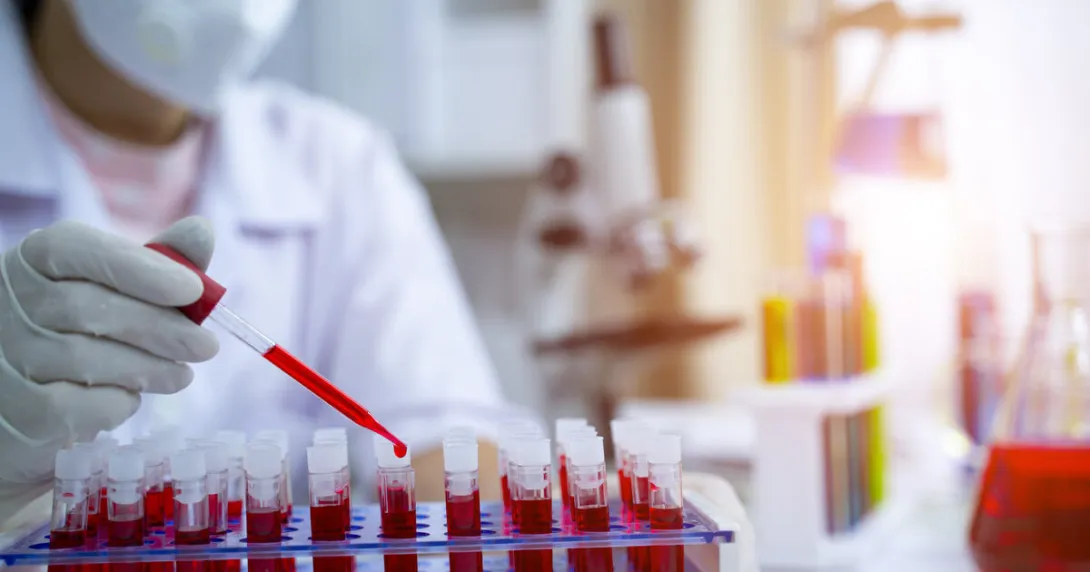
Photo: Seksan Mongkhonkhamsao/Getty Images
Researchers from the Peter Doherty Institute for Infection and Immunity claim to be the first to demonstrate the use of genome sequencing in tracking and receiving quick insights into bacterial changes during severe infections.
They studied patients who had severe, recurrent infections with Staphylococcus aureus or "golden staph." The deadly bacteria, responsible for more than a million deaths globally each year, can also cause sepsis, pneumonia, bone and joint infections, and endocarditis. Additionally, it can quickly adapt and become resistant to most antibiotics.
FINDINGS
In their study, the researchers applied bacterial genomics, supported by phenotypic testing, to assist clinicians in determining the cause of treatment failure in S. aureus infections and potentially guide salvage treatments. Genome sequencing provides a complete genetic profile of bacteria, including traits that influence their response to treatment.
Through this, they found that a third of cases had golden staph picked up dangerous mutations that made treatment likely to fail.
Lead author Dr Stefano Giulieri shared a case where the bacteria had become 80 times more resistant to the previously administered antibiotic.
"Each time they reappeared in blood, the bacteria had picked up a new dangerous mutation," The Doherty Institute quoted him as saying in a statement. Dr Giulieri is an infectious disease physician and clinician researcher at the Doherty Institute.
The clinical team was able to change the patient's treatment based on the genomic information and finally cure the infection.
"Our study is the first to show that by tracking bacterial evolution in real-time, genome sequencing can reveal tricks bacteria use to survive, giving doctors the power to stay one step ahead and tailor treatment to the specific bacterial strain. This helps avoid unnecessary treatments, minimise side effects for patients and prevent further antibiotic resistance – ultimately giving patients the best chance of recovery," Dr Giulieri explained.
The study also surveyed 25 global infectious disease specialists who rated their novel approach as "highly useful."
"The ability to track bacterial evolution in real-time during severe infections is a game-changer for clinicians," said Eugene Athan, one of the survey participants and professor and infectious disease consultant at University Hospital Geelong.
Meanwhile, the study also noted two potential key barriers to implementing genomic investigations of severe bacterial infections: the additional cost of sequencing and the timely delivery of results.
In their study, the cost of high-throughput genomic sequencing was approximately A$584 or around $370, which is twice the mean cost of bacterial whole-genome sequencing (WGS) at $194. Their laboratory's turnaround time was at least between five and seven days.
"Future studies should compare the relative accuracy, costs, and turnaround times of short and long-read sequencing for this type of analysis," they suggested.
The Doherty Institute worked with seven major hospitals in Victoria on their research: Austin Health, Eastern Health, The Royal Melbourne Hospital, Alfred Health, Western Health, University Hospital Geelong and Bendigo Health.
WHY IT MATTERS
Bacterial genomics, according to the researchers, has rarely found its way in clinical settings, given relatively long turnaround times for addressing acute infections and scant evidence on the impact of bacterial genetic factors on clinical outcomes. Until now, bacterial evolution studies have only been done retrospectively.
Still, the high resolution from bacterial genome sequencing provides accurate characteristics of individual bacterial strains in a patient, which can inform precision infectious disease management.
The Doherty Institute study demonstrated how phenotypic and genomics analyses "deliver additional information that cannot be easily inferred from the clinical context and routine microbiological data, including genetic relatedness and adaptive mutations."
"These findings represent a major step toward targeted therapy for bacterial infections and open the door to future clinical trials that could make this approach standard practice in hospitals worldwide," claimed Benjamin Howden, University of Melbourne professor and director of the Microbiological Diagnostic Unit, Public Health Laboratory at the Doherty Institute.
The Doherty Institute is now exploring the addition of a new genomic sequencing-based service through its public health laboratory for cases of severe bacterial infections where treatment fails.
THE LARGER TREND
The Alfred, one of The Doherty Institute's partners in their study, and Monash University have been developing a system that also integrates genomic data, EHRs, and AI to track and alert early cases of antimicrobial resistance (AMR) and predict possible outcomes of treatments for superbug infections.
An automated alert system for drug-bacteria mismatches was also tested and applied at The Prince Charles Hospital in Queensland, supporting its antimicrobial stewardship program.
Outside Australia, hospitals in Singapore and Taiwan have also created AI-powered systems for preventing and addressing potential AMR cases. Singapore General Hospital's AI model utilises clinical data to review and assess pneumonia cases and support better antibiotic prescription at the point of care. Meanwhile, China Medical University Hospital's antimicrobial AI platform features four functions: it identifies drug-resistant strains, predicts and monitors the risk of infectious sepsis and mortality, provides smart drug dosage recommendations, and automatically compares drug-drug interactions and allergy history.

